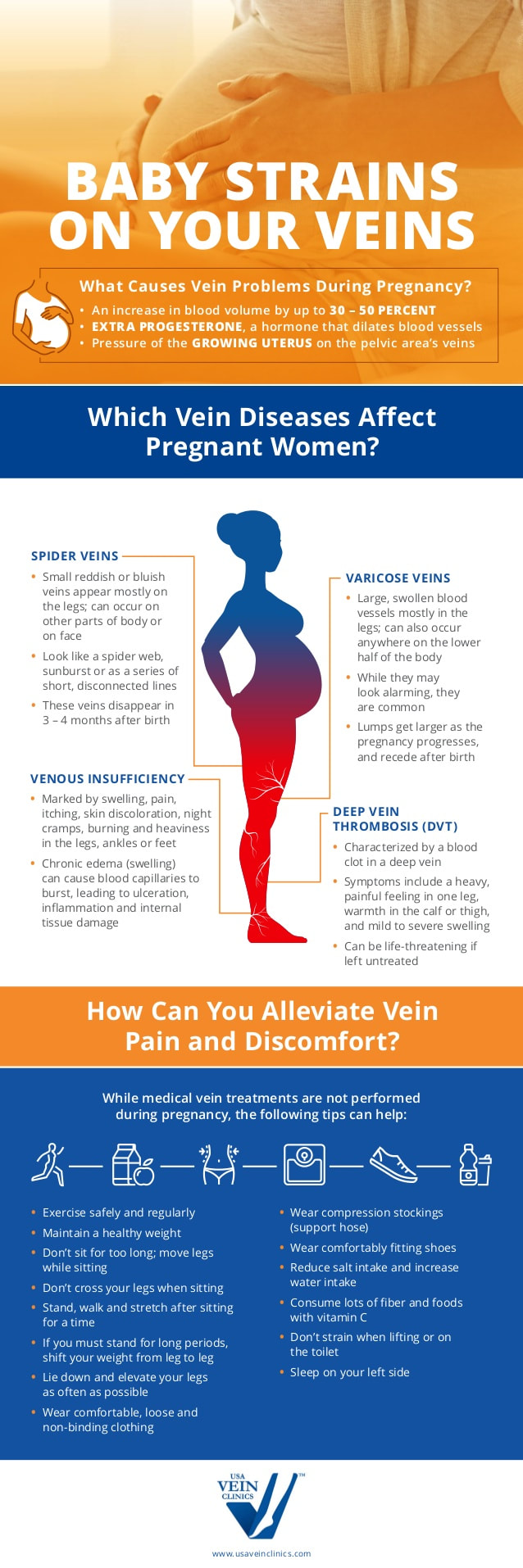Where do they show up? Varicose veins are large swollen dilated vessels that show up in the lower half of your body. They are most common in your legs but can show up in the vulva or rectum (aka hemorrhoids in the rectal area). When they swell above the surface of the skin, the have this lumpy purple unsightly appearance and can affect 10 to 20% of pregnant women.
Are they dangerous? While varicose veins are pretty ugly in appearance, they are usually harmless and will recede after pregnancy. That being said, look out for development of ulcers or marked difference in the swelling in one leg compared to the other as these could indicate more concerning issues such as venous insufficiency or deep vein thrombosis. Either of these conditions would require more urgent evaluation.
What can I do to minimize varicose veins when I am pregnant? Not all women get varicose veins when they are pregnant. However, if you have had varicose veins in a previous pregnancy, the likelihood of getting them with a subsequent pregnancy is high. Also, this can be genetic. So, if your mother had bad varicose veins, the likelihood that you will develop them is higher.
What can I do about varicose veins and prevent their appearance from getting worse?
- Exercise: Moving is key. Even if it’s just walking and not more intense exercise than a slow stroll- it is important to stay active. Exercise is important for maintaining good circulation.
- Keep the blood flowing. Whenever sitting, try to keep your legs elevated- helps that blood get back to the heart.
- Compression: using compression socks or support hose will help counteract the downward pressure of your pregnant belly and give the circulation in your lower extremities that extra push upwards.
- If you have hemorrhoids (varicose veins essentially around the rectum), try to do what you can to minimize constipation and the need to strain. Fluid and fiber intake are key. Add stool softeners and fiber supplements if necessary.
- Try to stick to the weight gain recommendations for pregnancy. For women with a normal bmi, the weight gain recommendation is 25-35 pounds. Extra weight gain increases the demands on your circulatory system.
Dr. Pam
Graphic created by USA Vein Clinics

 RSS Feed
RSS Feed